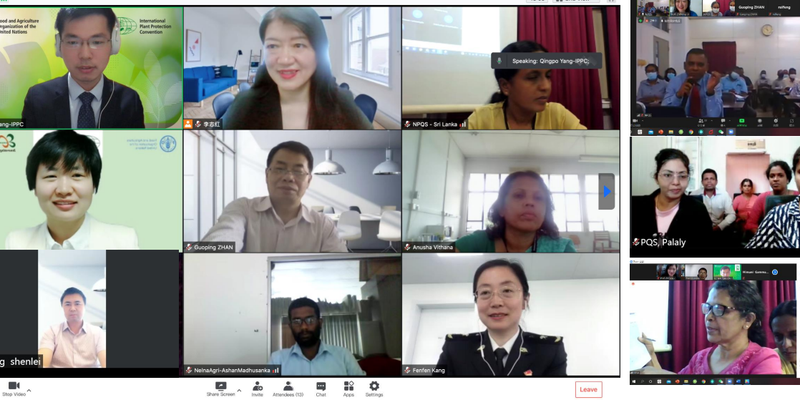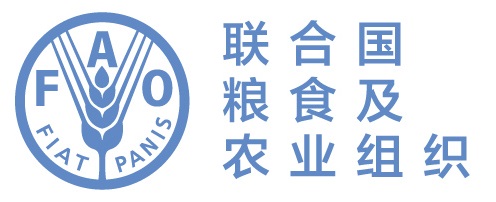Successful 6-day training on treatment and Integrated Pest Management of fruit flies held for Sri Lanka trainees
Posted on Thu, 12 May 2022, 08:56

ROME, 5 May 2022. The Secretariat of the International Plant Protection Convention (IPPC) organized the 2nd virtual phytosanitary technology training on treatments and the integrated pest management (IPM) of fruit flies in Sri Lanka from 25-29 April, and on 5 May 2022. The training series was supported by the IPPC China project GCP/INT/291/CPR titled, “Strengthening the Capacity of Developing Contracting Parties to Implement the IPPC and its Standards under FAO-China South-South Cooperation Programme.”
Speaking at the opening session, Qingpo Yang, Programme Specialist at the IPPC Secretariat, briefed trainees on the IPPC-China project and the work plan for Sri Lanka. He highlighted that the second training course focused on the treatment and Integrated Pest Management (IPM) of fruit flies in Sri Lanka. Mr Yang expressed his gratitude for the efforts of Sri Lankan representatives and Chinese experts in organizing the training.
Sri Lanka is one of the two pilot countries of the IPPC-China project. This second phytosanitary technology training benefits 36 trainees selected by Sri Lanka counterparts from National Plant Quarantine Service, airport and extension service center. Trainees learned the techniques of mass rearing of economically important fruit flies, as well as the principles, methods, and techniques in their treatment including vapor heat treatment, hot water immersion treatment and irradiation treatment. Trainees also learned the techniques of IPM for economically important fruit flies and the principles, methods, and techniques of quality testing of fruits treated. Upon Sri Lanka’s request, the speakers also presented the phytosanitary import requirements in China for fresh fruits and vegetables.
At the end of the training course, the trainees were divided into seven groups. Each group presented a proposal according to the topics assigned to them at the beginning of the training. Some proposals showed how the trainees would apply the phytosanitary measures to control economically important Fruit flies and improve the quality of Mango in Sri Lanka. Other proposals showed how to apply IPM techniques controlling economically important fruit flies in the field by small and medium farmers and pilot enterprise. The Chinese experts provided comments and suggestions on how to improve these proposals.
“Further cooperation, not only on fruit flies, is needed among Sri Lanka, the IPPC Secretariat and China to enhance Sri Lanka’s phytosanitary capacities by using new technology,” Indicated W.A.R.T Wickramarachchi, Additional Director, National Plant Quarantine Service, Department of Agriculture of Sri Lanka. He further expressed his appreciation for the excellent coordination of the IPPC Secretariat and the high quality of presentations delivered by Chinese experts.
“The IPPC Secretariat is always committed to improving contracting parties’ phytosanitary capacity and to facilitating international trade,” said Osama El-Lissy, the IPPC Secretary. El-Lissy affirmed the valuable presentations that were customized according to Sri Lanka’s needs during the six-day training. He believed there would be more opportunities to cooperate further with Sri Lanka.
Related information:
ISPM 37 - Determination of host status of fruit to fruit flies (Tephritidae)
ISPM 35 - Systems approach for pest risk management of fruit flies (Tephritidae)
ISPM 26 - Establishment of pest free areas for fruit flies (Tephritidae)


